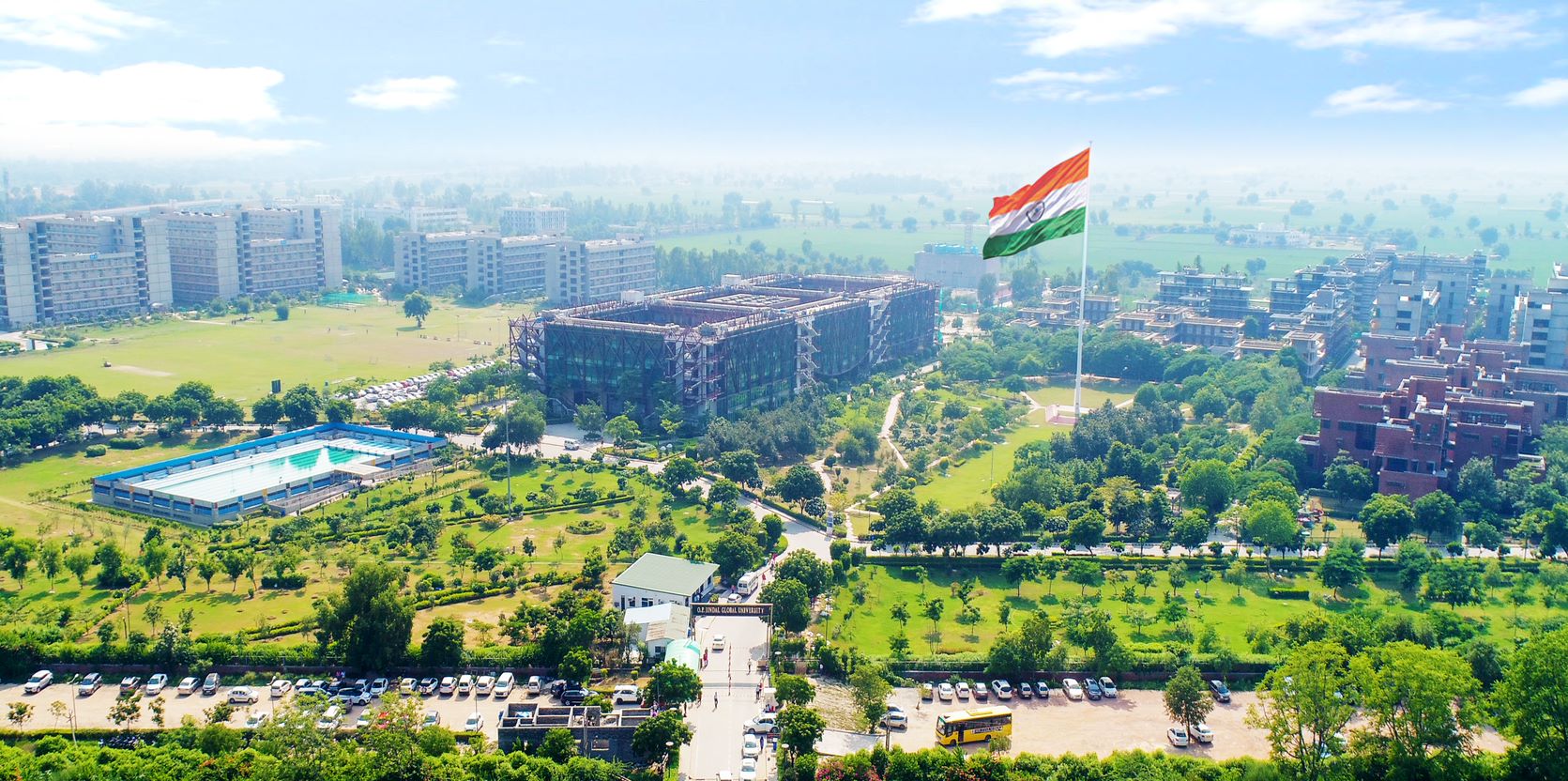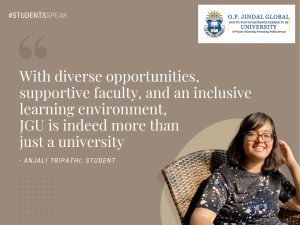More than 100 students of International Relations, Public Policy, Humanities, Business and Law from the O.P. Jindal Global University (JGU) have been awarded internships in leading Australian organisations. Despite the constraints presented by the global Covid-19 pandemic, 103 students have been selected for internships at CyberEQ and IAIE in 2021.
JGU has signed Memorandums of Understanding (MOUs) with Australia-based Institute for Australia India Engagement (IAIE) and Cyber EQ to create opportunities for students to undertake internships in Australia. With IAIE, students will participate in the Student Mentoring and Research Training (SMART) program over a period of 1-2 months. For those students interning with Cyber EQ, students will conduct important research on regulatory and technological issues around cyber security.
The internships will mentor students for future research, academic and professional roles and impart training to build research skills in academic writing including data collection and management, preparing hypothesis, abstracts and conclusion and presentation skills among other skill. The internship programme will also impart key leadership skills to the students.
Professor (Dr.) C. Raj Kumar, Founding Vice Chancellor of O.P. Jindal Global University said, “At a time where travel is limited, the virtual engagements with Institute of Australia India Engagement and Cyber EQ will allow students from different disciplines at JGU to undertake unique internship opportunities in Australia. These international internships are another example of JGU’s focus on ensuring that students have opportunities to meaningfully engage with institutions from around the world during their studies. In the future, our students will be able to pursue these internships by travelling to Australia and experiencing it in a more engaged manner.”
CyberEQ Founder, Mr. John Mackenzie has been impressed with the entrepreneurial and forward-thinking innovation of JGU in supporting emerging start-ups. The partnership between JGU and CyberEQ enters its third intake with more than 64 virtual interns, now expanding the research focus to existing and emerging inconsistencies between the traditional and technological challenges facing Cybersecurity. “The virtual internship program is student-centric research that provides a unique learning environment. An objective is to ensure each student receives quality coaching and mentoring so that each intern has the greatest experience and opportunity to learn. JGU students have a unique opportunity to explore a deeper understanding through higher education by bridging the gap from a legal, business, and psychological perspective to technology. A particular focus of the internship program is how students relate to the emerging challenges through real-world experience working on real-world projects, while also preparing for the future of work, and the new jobs of tomorrow. Key areas have included privacy, data protection law, AI, and behavioural science, particularly as we face the growing difficulties in cyberspace.”
CyberEQ focuses on workforce behavioural risk, supply chain counter-party risk, and international cyber regulations, legislation and standards.
“I am extremely delighted to observe and be a part of O.P. Jindal Global University’s partnership with numerous organizations and multiple platforms in Australia. This partnership is an outcome of global perspective and JGU’s collaborative. JGU’s association with Australia has evolved over a period of time. Even during the pandemic, the virtual internships by Cyber EQ and the Institute of Australia India Engagement have been a catalyst. I am certain of an enriched and prolific growth of this partnership in times to come,” said Professor (Dr.) Pankaj Gupta, Dean of the Office of Career Services.
Dr. Ashutosh Misra, CEO and Executive Director of IAIE said: “IAIE is committed to strengthening Australia-India ties by nurturing future thinking leaders, professionals and academic experts in collaboration with JGU. The Student Mentoring and Research Training (SMART) program is an important part of this vision, encouraging meaningful contributions from the next generation of leaders in the bilateral relationship”.
Dr. Misra noted that research interns will have the opportunity to contribute to high-impact evidence-based research publications, participate in training workshops, and prepare content for the “Youth Pulse” section of India News, a fortnightly publication in Australia.
IAIE is a not-for-profit policy institution which aims to strengthen Australia-India Strategic Partnership through evidence-based research, exchange of new knowledge, targeted policy dialogues and innovative business solutions for the government, corporate and community stakeholders.
Professor Shaun Star, Director of the Centre for India Australia Studies at JGU, said that “Students at JGU, and more generally in India, are increasingly looking to Australia for future studies or employment opportunities. Through international internship programmes, such as the virtual internships with IAIE and CyberEQ, and degree pathways at leading Australian universities, we are providing our students with greater opportunities to experience what it is like to work and study in Australia.”
As an organisation, CyberEQ provides a business intelligence solution for workforce and supply chain risk mitigation. CyberEQ has developed a self-learning AI autoimmune system that detects workforce threats, vulnerabilities, risks and anomalies faster, and before they occur. This allows for the deployment of early interventions to kill cancerous cells by stopping them from growing and multiplying. While research and development forms the basis of CyberEQ’s product development and team passion, the team at CyberEQ coach, mentor and lecture undergraduate and post graduate students, and actively challenge them to explore deeper understanding of the root cause of cyber, and how the global finite resources can be applied to have a meaningful improvement (impact) in countering the escalating issue.
IAIE achieves its mission by organising (i) policy-driven multi-disciplinary project collaborations with Australian, Indian and international partners on foreign policy, defence and security, business and trade, energy, education, sports and culture; (i) multi-track policy dialogues involving policy makers, strategic analysts, academics, sportspersons and business leaders; (iii) targeted capacity development and business solutions for stakeholders in both countries; (iv) special orations, public lectures and seminars on bilateral and strategic issues; and (v) community dialogues, media engagements and public events to strengthen multiculturalism in Australia and India.


